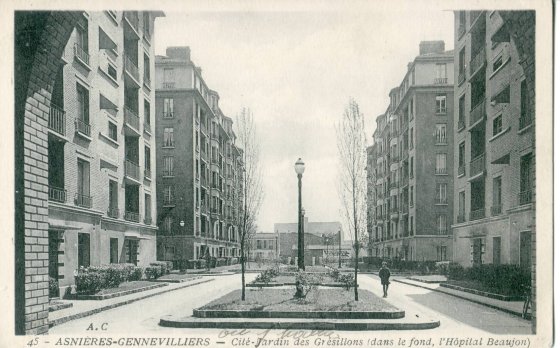
Abstract
Garden cities were born out of a political and social desire to get English workers out of the capitalist system that crowded them into often unsanitary living quarters. At the height of the Industrial Revolution, urban planner Ebenezer Howard published To-morrow: a peaceful path to real reform (1898), in which he theorized the garden city as a town with few dwellings, where land is managed by the municipality, entrepreneurship is subject to the vote of the inhabitants, and which supports itself through its own agriculture and public infrastructures that promote leisure and culture.
Between the ecological stakes of preserving biodiversity and creating a more sustainable way of life, and the social stakes of improving quality of life and creating a community, the garden city made its mark in early 20th-century Europe. It was seen as a saving, innovative utopia, and the ideal of a better life, even an "earthly paradise" (Georges Riser, "Les cités-jardins", 1909). Several years after the appearance of the first garden cities, their legitimacy began to be debated, not least because of their spatial isolation, which can resemble an ideological huis clos, or because of the questioning of the ecological sustainability of these models.
The round table "La cité-jardin revisitée: urbanisme durable au XXIe siècle" (Garden cities revisited: sustainable urbanism in the 21st century), moderated by student journalists, proposes to understand the garden city, to question it and to debate the phenomenon from a historical point of view, but also through a current prism, which will cross the political, sociological and ethical questionings of this sustainable urbanism, thanks to the expertise of multiple guests.
The discussions will be initiated by Philippe Sansonetti, professor at the Collège de France and patron of this second session of the Avenir Commun Durable lecture series.
